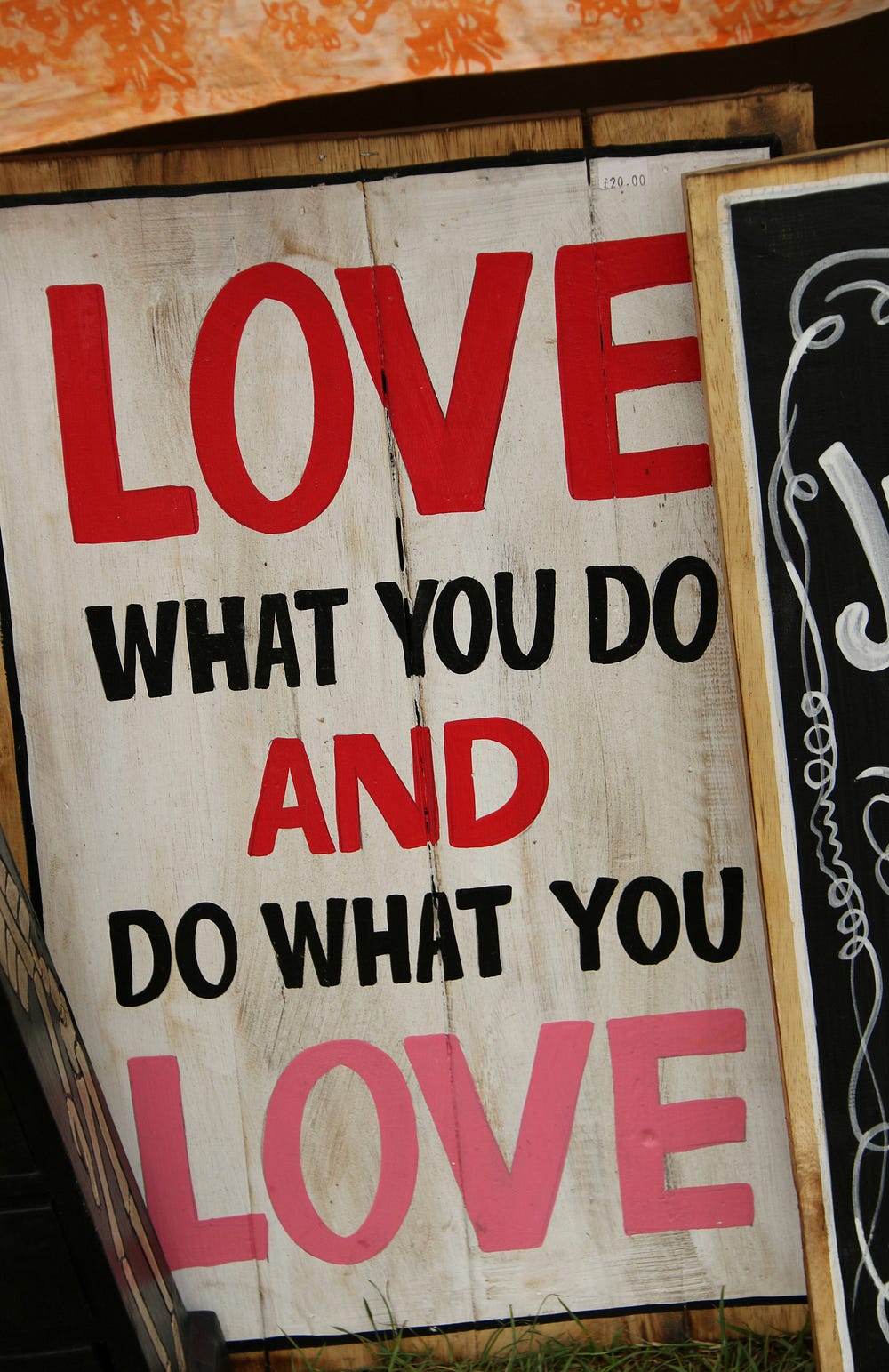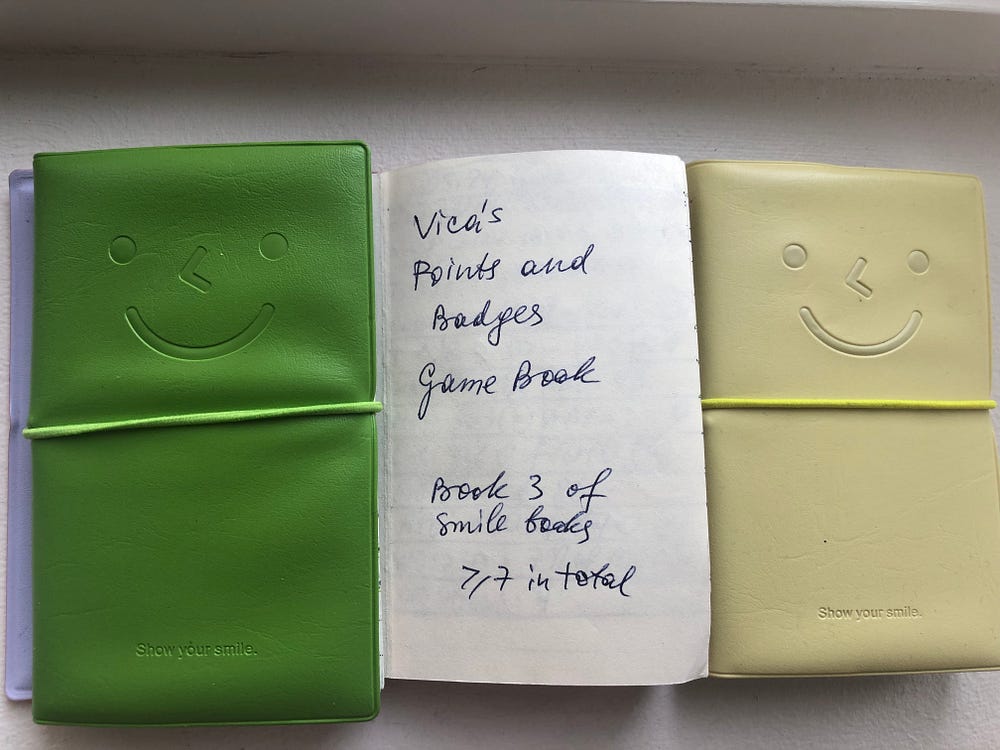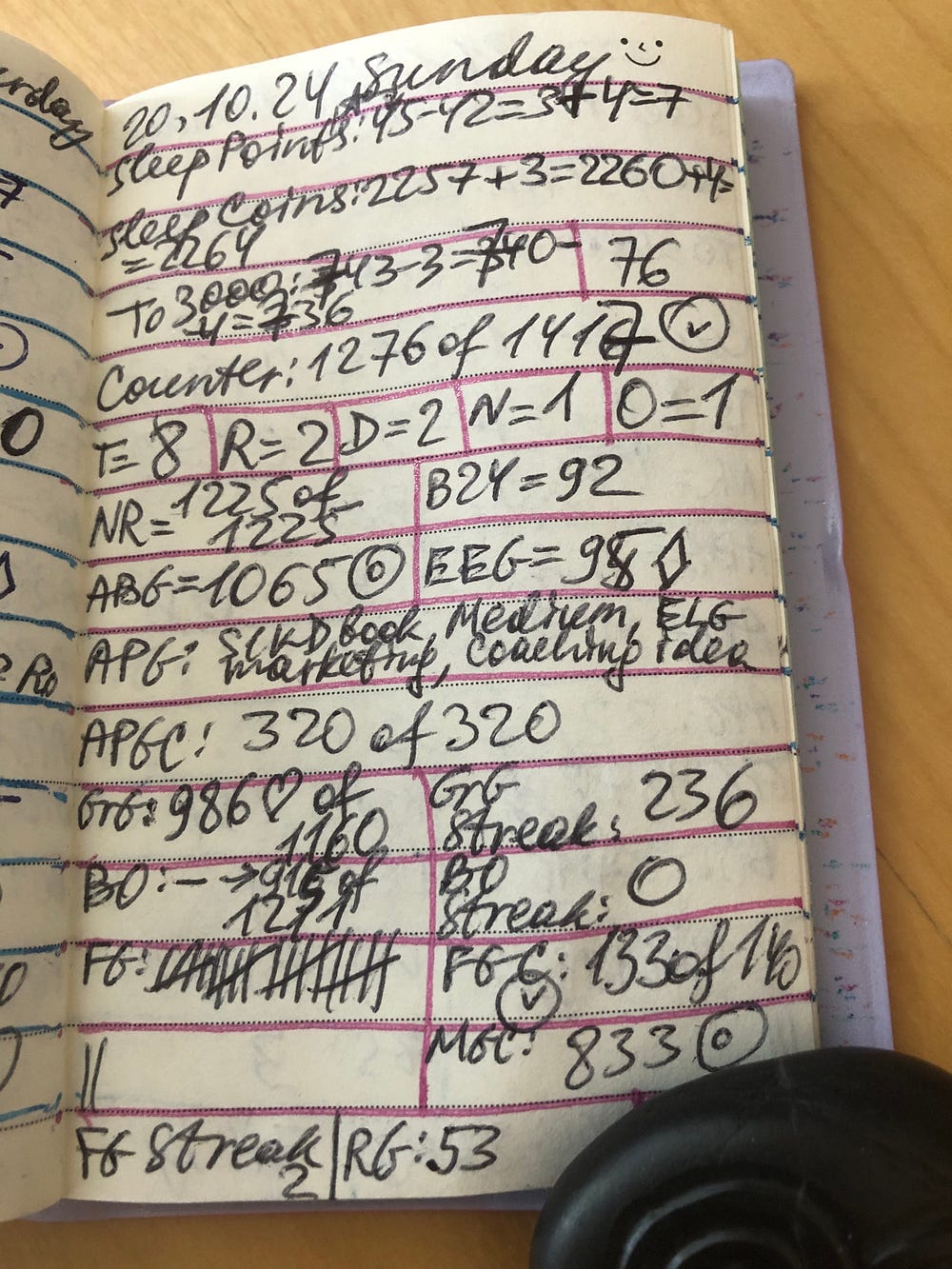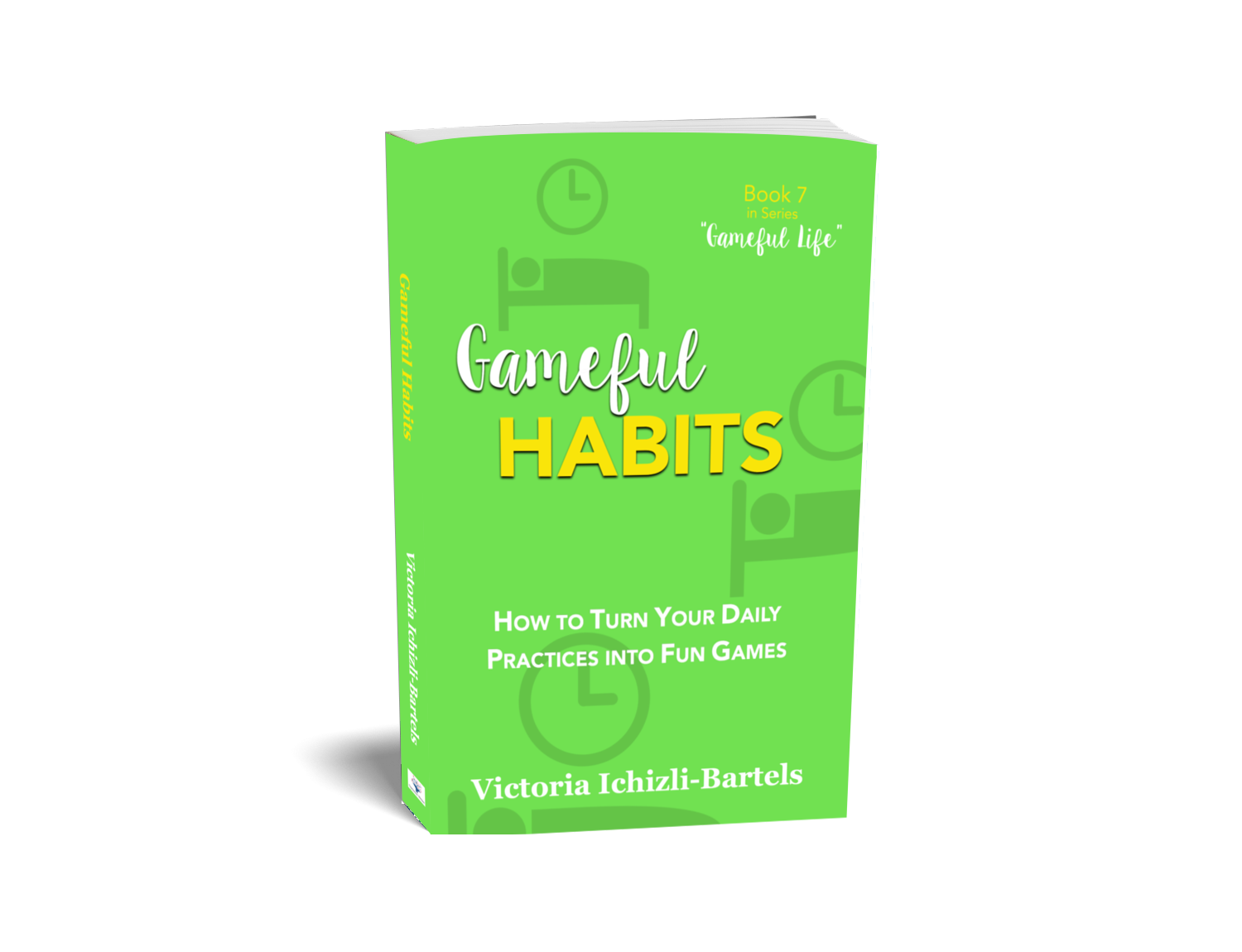I love approaching life gamefully! One of the reasons?
It is because, when I am not motivated and resist engaging in an activity I want to pursue, I don’t berate myself, or at least not long, but instead treat myself as a game designer would his or her best and most trusted game-tester. If the gamer does not engage, something is wrong with the game.
What does it have to do with the topic of this post? The following.
It’s been some time since I blogged here. (See my previous blog post and how fantastically it connects to the introduction and motivation for this one and the project it introduces, even if I haven’t planned that explicitly.) I tried to come back and do it again, but the practice remained sporadic. I blogged on Medium more regularly, with breaks in between. When I looked at the longer stretches with more writing and engagement on my part as a blogger on either of the platforms, I saw that it was when I was blogging a book or sharing excerpts of one or the other I wrote.
I love reading and writing books. Books feel like epic adventure games with many fun levels made of parts, chapters, and paragraphs.
And as luck might have it, I am working on two books on self-gamification right now. So, I decided to move one of the book projects from Medium to here.
It is about my various self-motivational games, or, as I also call them, “My Reality Game Collection.” I wrote and published an article on Medium with this title, which will serve as an introduction to the book or collection of books, where I will share various projects, activities, practices, and others, approaching them as if they were games I design, develop, and play.
Here is this article to start this fun project of sharing my reality game collection with you to get inspiration on how you can approach your reality with fun, joy, and success.
Originally published on Medium by Victoria Ichizli-Bartels in Gameful Life (5 min read),
Oct 23, 2024. To read on Medium, follow this link.
My Reality Game Collection
And how I design, develop, and play my life.

For over a decade now, I’ve been approaching parts or the whole of my life as if they were games I design (or co-design), develop, and play.
I’ve played many self-motivational games over the years. Self-motivational games are projects, activities, and practices that I approach as if they were games, which, in my opinion, they are since anything in life has the same core components games do.
I discovered that in anything you approach gamefully, motivation becomes a readily available by-product, including its most coveted by game and gamification designers type, intrinsic motivation.
Alone, the inability of many life gamers and myself to give up living gamefully and instead be creative and resourceful with everything we are up to attract curiosity from those who hear about this opportunity.
I am often asked about different self-motivational games I play, both those I play now and those I played in the past, which I either don’t play anymore or play once in a while.
At some point, I realized I had a whole collection of self-motivational games.
Well, my life is such a collection of self-motivational games since these games are nothing other than what I take on in my life’s journey.
That’s how I started thinking of my current self-motivational game collection, especially the scores I record in my little book, Vica’s Points and Badges Game Book. Vica is short for Victoria. This little book reflects a big part of my reality game collection.

If I use my first name for this real-life game collection, it would be Victoria’s Reality Game Collection, abbreviated VRGC. When I shared this abbreviation with gamers in my family, my son said that VRGC should stand for Virtual Reality Game Console. Upon an online search, I found this acronym to mean “Voucher Register & General Control,” and used rarely. It is attributed to the use in the following category: “Military and Government.” But I must say, I like the acronym VRGC to stand for “Victoria’s Reality Game Collection.” However, I must admit that MRGC for My Reality Game Collection sounds great, too. And YRGC, Your Reality Game Collection, must be fantastic, too, since it is yours alone, and you have the power to design, develop, and play it.
Game designers and players learn from other game designers and players. They look over their shoulders and get inspired. I get inspired by gamers in my life and by books and articles on game design, psychology, and other intriguing topics. As a life gamer, I enjoy sharing my games and their designs and frameworks.
Here is a summary of my game collection.
I play:
- Awareness games
- Ambition games
- Health and well-being games
- Habits games
- Learning and growth games
- Perseverance games
- Relaxation games
- and many others.
Many of these games can be attributed to more than one type.
I also play games based on the game elements or mechanics that drive them:
- Booster games
- Gemstone games
- Streak games
- Counter games
- and others.
I also play briefly some of my self-motivational games without recording any points.
The way I reward myself in these games differs, too.
For example, in the Awareness Booster Game (ABG) and Exploring Emotions Game (EEG), I observe the world around and inside me and get inspired and awed by the epiphanies I make on the way. I also observe and explore emotions, especially those I get confused by, and acknowledge my participation in these games daily. So, I never lose in these two games; their score reflects all the days since starting to acknowledge my participation in them daily and recall what observations and epiphanies I made.
In others, like Super Sleeper Game, I have multiple scores to record my progress, reward myself when I get enough sleep or punish myself in small ways for sleeping less or precisely seven hours. This epic game is one of those I continually develop to keep myself motivated to get enough sleep. This game helped me to go from over forty hours of deficit reached within half a year to almost 380 hours in plus gathered in almost four years (over forty-five hours on average per each half a year) since playing this game. And all these numbers reflect the improved health I experience due to getting enough sleep and taking better care of myself.
There are also many other designs in between the above two.
You can see the earlier design of the Super Sleeper Game in my book Gameful Habits (see below its description and where you can purchase it).
In the photograph below, you can see the recent recordings of my games, including the Super Sleeper Game with its points, coins, and gemstones abbreviated as T for tourmaline, R for ruby, D for diamond, N for nephrite jade, and O for obsidian or opal, Awareness Booster Game (ABG), Exploring Emotions Game (EEG), and other games and game elements.

Why do I do all that and approach my life gamefully as if it were a collection of games I design, develop, and play? There are many, many reasons. Here are two main ones:
- The activities I enjoy and want to succeed with become even more fun and fantastic to experience. And I reward myself for any progress I make in them.
- Those I commit to but sometimes think I don’t enjoy become those I discover I can enjoy, either by adding fun game elements, watching my progress with them, and getting closer to their goals, or by discovering something new and fun that I was unaware of before that.
Thank you!
I hope you enjoyed reading this article. I enjoyed the writing game for it, which is part of my Ambition Project Games (APG), visible in my little score book shown above.
I will be off to another game from My Reality Game Collection (MRGC) in a minute. How does YRGC — Your Reality Game Collection — look like? Feel free to share this with me through the channel where you discovered this post.
Standalone, Book 7, Gameful Life Series
Gameful Habits:
How to Turn Your Daily Practices Into Fun and Exciting Games
⇒ Click to buy on Amazon ⇐
⇒ Click to buy elsewhere⇐
Turn your daily practices into fun and exciting games.
Many people struggle to motivate themselves to start the day, work on a project, or maintain a healthy or otherwise beneficial habit. They consider many of their daily routines to be a necessary chore that they will never enjoy.
The pioneer of Self-Gamification — a unique approach to turning life into fun games — Victoria Ichizli-Bartels, has discovered another way for herself, and offers this possibility to others by sharing her experiences.
In this unconventional book on habits, Victoria shares the Super Sleeper game she created to ensure she got enough sleep, and how this success was extrapolated to the other habits and daily practices she wanted to develop.
Read Gameful Habits, and you will learn the three skill sets required to succeed in your self-motivational games, i.e. any habits, projects, challenges, tasks, or other activities turned into fun games. These skill sets are:
- Seeing yourself, the world around you, and your thought processes non-judgmentally, as an anthropologist would do;
- Identifying your dreams and goals, and taking action, one small and effortless step at a time, the kaizen way;
- Applying gamification; that is, seeing and treating whatever you are up to like a game, and learning to appreciate every step on the way with gameful rewards.
These skill sets, which you can easily put into practice immediately — along with the awareness that when you turn your life into fun games, you are both the player and the designer of these games — will help you turn happiness into a lifestyle, and health and other beneficial practices into exciting games that you can’t wait to design, play, and continue developing.
You can check out my articles on Medium by following this link.

